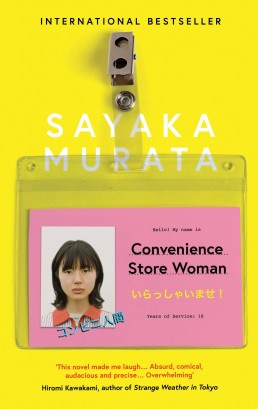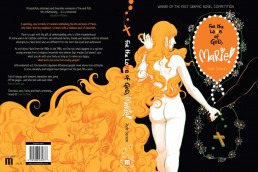By Delilah Kealy-Roberts
Photography by John Mark Smith, Annie Spratt and Paula Hanaoka, via Unsplash
Before beginning this book and after a brief glimpse at the blurb I described it to my partner as: “It’s about a woman who works in a convenience store and doesn’t wanna get married.” His response was measured, reasonable and to be honest, probably what you’re all thinking: “I can’t say I’m gripped by that synopsis”.
The last book we looked at together, The Water Cure, transported us to a dystopian island and taunted us with ominous brainwashing and the eerie unknown. This month however, we are trading in that dark watery landscape for the fluorescent familiar — the bright interior of a convenience store.
Our central character, Keiko, is decidedly abnormal. She comes to realise her abnormalities early on in life but can never quite understand society’s rules and what makes her actions so devastatingly different to others. Her logic lacks empathy yet is comically quirky to the reader at times. From horrifying her mother when she wants to take home a dead bird to cook (why is it different to the meat they eat at home?), to hitting fighting boys over the head with a spade in the school yard after somebody screams “someone make them stop!”, her actions are bizarre yet strangely practical. Often amusing and sometimes completely sinister, Keiko grows to be a character that you’re routing for throughout this touching novel.
It doesn’t take Keiko long to realise her best chance of survival within this mysterious society is the chameleon technique: to blend in. When she begins a part time job in a convenience store she finally finds a way to do this. As a convenience store worker, she becomes “a normal cog in society”– a society which she half believes is “all an illusion” anyway.
The role in the store does the job to stop people asking questions, at least for a while. As she ages however, the critics (her family and friends) rear their ugly heads. When will she get married? Start a family? Pursue a ‘proper’ career?
I chose this novel to be part of the Bechdel Book Club as it defies the classic “girl meets boy” narrative that we are so often fed. Keiko is a protagonist that embodies an odd sort of passive resistance. She doesn’t really care about romance or sex and she doesn’t see marriage and a family as the ultimate aim. This is difficult for those around her to understand but refreshing for any reader that finds themselves equally unmoved by society prescribed goals.
Convenience store woman is a loveable and quirky read, which offers the perspective of the abnormal without over-sensationalising it. And what’s more, it passed the Bechdel test with flying colours. Ok, perhaps that’s because most of the dialogue is about stacking the juice boxes, cleaning the store isles, and how to correctly manage the till… But that’s good enough for me! Trust me on this one, it kind of is just about a woman who works in a convenience store and doesn’t wanna get married, but I guarantee you you’ll somehow still love it to bits.
Some Bechdel Book Club Questions:
- Do you think Keiko’s assimilation into society is ‘healthier’ than Shiraha’s apparent reaction of it?
- Is society portrayed as dangerous within this novel? Or just not for everyone?
- Keiko devotes her existence to making other people’s lives and her own more convenient, but this results in lies and deception. As a reader did you find yourself frustrated with Keiko’s approach to getting through life or weirdly relating to it?
Delilah Kealy-Roberts
Delilah is a BA English literature graduate and writer based in the North East of England. She specialises in anything dystopian, with a particular interest in gender politics (spoiler alert: gender roles don’t exist in the apocalypse). She has an affinity towards finding cheap flights out of the UK and colossal veggie breakfasts.









